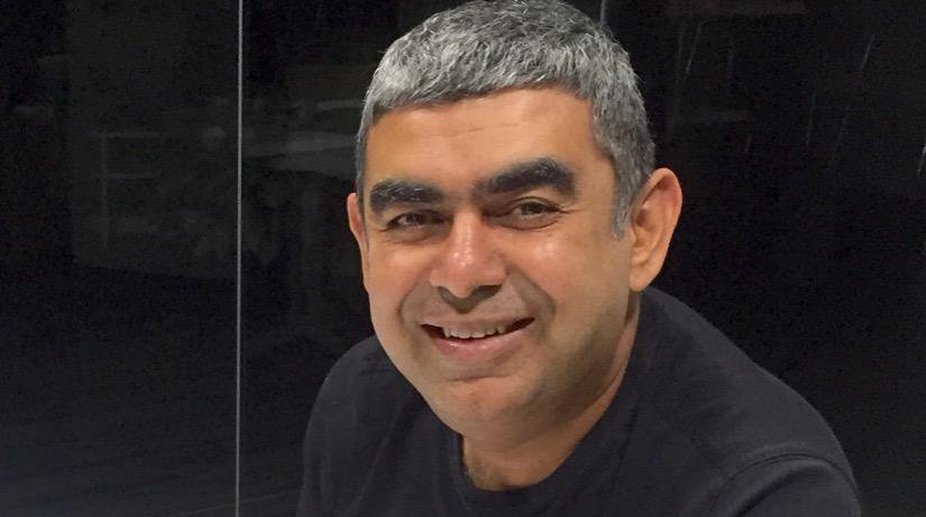Infosys to expand its campus in Telangana
Tech giant Infosys is all set to expand its IT campus at Pocharam. The move will lead to the creation of 17,000 new jobs in Telangana.

Vishal Sikka (Photo: Twitter)
Vishal Sikka, the embattled chief of Infosys, on Monday said he has always shared a "heartfelt, warm relationship" with the company's co-founder NR Narayana Murthy.
The comments come at a time when there has been a lot of buzz around some of the founders flagging concerns about governance lapses at Infosys and issues like hike in Sikka's compensation to $11 million and huge severance pay doled out to former executives, Rajiv Bansal and David Kennedy.
Advertisement
Asked about his relationship with the founders, Sikka said: "My relationship with the founders? It is wonderful. I meet Mr Murthy quite frequently…I have always had a heartfelt warm relationship with Mr Murthy, probably meet him 4-5-6 times a year."
Advertisement
He added that he, however, hasn't met the other founders off late.
Describing Murthy as an "incredible man", Sikka said the two usually discussed topics like quantum physics and technology whenever they met.
"The other day he was telling me about the Paris Metro and how he worked on the Paris Metro in the 1970s before he started Infosys, and it had this whole ideas about automation and autonomous driving and all," he reminisced.
Sikka, speaking at Kotak's Chasing Growth Conference in Mumbai, said the "drama" going on in the media is very "distracting".
"It takes away our attention but underneath that, there is a very strong fabric that this company is based on. And it is a real privilege for me to be its leader," he added.
Sikka is scheduled to meet media representatives this evening along with some of the Board members.
Infosys, on its part, has denied any governance lapses and said it has made "full disclosures" on all developments.
Another issue that some of the former senior executives have raised is the huge cash pile of $5.25 billion that Infosys has.
Asked about his views on the matter, Sikka said his "official" answer is that the Board, from time to time, will consider capital allocation policies and when there is something to report, the company will do so.
"The unofficial answer is, you look at the circumstances over the next 4-5 years, what you need the capital for and then decide. In our case, it is the strategic growth initiatives, capital for building infrastructure and then acquisitions," he said.
Based on how that mix changes over the next 5 years, one takes a decision on how the cash is utilised, he added.
Advertisement